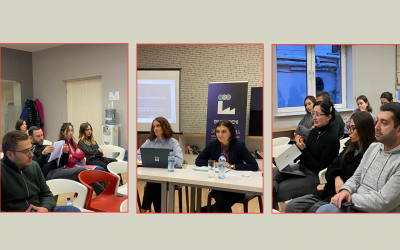This report by the Social Justice Center offers a legal analysis of the contracts offered by app-based delivery service companies operating in Georgia.
The volume of economic activities carried out via app-based platforms has increased significantly in Georgia recently. The number of people employed in the platform economy has also increased, but most of these workers have been unable to obtain employment status and do not enjoy even the minimum guarantees set by Georgia’s labor legislation. Nowhere is this problem clearer than in the field of app-based delivery services. App-based delivery companies typically treat couriers as independent contractors and enter into service contracts with them. This enables them to attempt to avoid worker protections provided by Georgia’s labor laws, such as the obligation to provide a safe working environment for couriers and other standards for ensuring decent work.
Unfortunately, the Covid-19 pandemic made couriers’ already onerous working conditions even more difficult and dangerous. At the same time, because couriers are not classified as “employees,” they are not covered by state social protection systems. State institutions have begun to question this arrangement over the past year: both the Labor Inspectorate and the Public Defender have determined that app-based couriers should be considered employees, and have urged delivery companies to uphold and enforce the labor law. Despite this, little has changed in practice.
This report analyzes existing contracts* offered by app-based companies, in order to assess couriers’ legal status. The report further identifies the legal mechanisms and practices that app-based companies use to disguise their employment relationship with couriers.
Available in Georgian only
The Center for Social Justice is not responsible for the accuracy, completeness or completeness of the content of the contracts included in this report.
This publication was prepared individually by a member organization of the Fair Labor Platform and does not necessarily reflect the position of the Fair Labor Platform and/or its other members.



